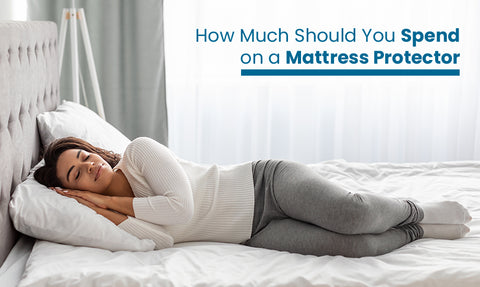
Before knowing the relationship between serotonin and the sleep cycle, let us know more about serotonin. Serotonin is a neurotransmitter (that also acts as a hormone) and carries signals from the central nervous system (nerves from the brain) to the peripheral nervous system(throughout the body). Serotonin is a natural chemical with the chemical name 5-
Hydroxytryptophan found in the brain, bowel, and platelets. The essential amino acid tryptophan constitutes this chemical, thus it is obtained from outside sources. Our brain produces only 10% of serotonin, the rest is found in the lining of our intestine.
What are the effects of Serotonin?
- Mood: Our mood is controlled by the neurotransmitter serotonin. It is frequently referred to be your body's inborn "feel good" chemical. You feel more emotionally secure, happier, calmer, and more emotionally focused when serotonin levels are normal. Depression and low serotonin levels are related. Numerous drugs prescribed to treat anxiety, sadness, and other mood disorders frequently work to raise the brain's serotonin levels.
- Digestion: The majority of the serotonin in your body is found in your GI tract, where it plays a role in protecting your gut and controlling bowel movements. Your gut can release more serotonin, which can hasten digestion and help your body get rid of unpleasant meals and harmful items. Additionally, serotonin helps you feel fuller after meals.
- Nausea: When serotonin is released into your gut more rapidly than it can be absorbed, nausea is the result. Your brain receives the chemical signal, which you witness as nausea. multitudinous specifics used to lessen nausea and puking target particular serotonin receptors in the brain.
- Sleep: Serotonin and dopamine both contribute to the quality of your sleep( how well and how long you sleep). In order to produce melatonin, a hormone that controls your sleep-wake cycle, your brain also needs serotonin.
- Wound healing: Serotonin is released by platelets in your blood to prop in the mending of injuries. Arterioles, the lowest blood modes, also narrow due to the condition, decelerating blood inflow and promoting the conformation of clots. This procedure is pivotal for healing injuries.
- Bone health: Serotonin levels also contribute to the density of your bones. Increased levels of serotonin in your intestine may play a role in making bones weak, and it leads to bone breaks (fractures) and osteoporosis.
Most individuals are aware that how well they sleep and how much of it they get can directly affect how well they perform during the day. Some people fall asleep right away, but for others, it is an impossible feat. All night long, they would toss and turn, leaving them feeling worn out and drained. But did you know that your ability to sleep at night might be impacted by what you do during the day?
Serotonin is a neuromodulator of sleep. The forebrain and brainstem regions play a key role in regulating and controlling the sleep/wake cycle. Serotonin is an important chemical that plays role in the sleep-wake cycle. Not only it promotes wakefulness but it also inhibits rapid eye movement. Inhibiting REM-sleep effector neurons in the brainstem during waking hours may help serotonin work in conjunction with noradrenaline and acetylcholine to promote cortical attentiveness (inhibitory role on REM sleep).
But what is REM sleep?
REM, Rapid Eye Movement, is the fourth stage of sleep that occurs an hour after you fall asleep. Your brain activity increases in this stage, sleep is not deep and dreams are intense at this point. At this particular time, your legs and arms cannot move, and are temporarily paralyzed. Besides muscle relaxation and brain activity, a person also undergoes increased breathing, heart rate, and rapid eye movement.
The two main elements that affect sleep are as follows. One is the circadian clock, which tells the body to stay awake during the day and go to sleep when it gets dark. Homeostatic sleep pressure is the other element. You've just had sleep, so you're up and energized in the morning. You grow tired and sleepy throughout the day, which puts pressure on you to go to bed. Even though it is daylight outside and your circadian clock says you should be awake, if you don't get enough sleep that night, your sleep pressure is even higher the next day and you are even more exhausted. The scientists hypothesize that neural activity in the raphe and their release of serotonin is a way for the brain to build up sleep pressure.
There are at least two reasons for the seeming contradiction between serotonin's inhibitory and facilitative effects on sleep. The achievement of a behavioral state depends on the intricate interaction between the serotonergic and other neurotransmitter systems. On the one hand, serotonergic modulation of the sleep/wake cycle occurs through a multitude of post-synaptic receptors that mediate different or even opposite responses. REM sleep is induced by the cholinergic neurons in the pons, which are inhibited by brainstem serotonergic and noradrenergic neurons. Lethargy and weariness have been linked to serotonin's impact on sleep in humans.
Wakefulness is associated with the dorsal raphe nucleus and electrical stimulation of the receptors causes wakefulness. It was observed that administration of these receptor agonist causes wakefulness, thereby reducing sleep. Cortical serotonin is higher in level during wakefulness, reduced during REM phase.
Serotonin is known to synthesize the hormone melatonin. It plays an important role at night as it regulates biological clock. Where melatonin regulates the entire wake-sleep cycle, serotonin specifically regulates wakefulness, REM sleep.
What Sleep disorders can be caused due to low levels of serotonin?
Insomnia and depression are correlated with serotonin. Though many researcher found that depression is not an effect of low level of Serotonin but no evidence fully supports the theory. Depression and Insomnia has bidirectional relationship. A person with depression cannot sleep or a person with poor sleep habit are more likely to be depressed. Due to high level of serotonin, wakefulness is promoted causing insomnia in a person and in turn, it leads to depression.
Serotonin plays important functions in body and is always good to consult your doctor if you have any health issue regarding Serotonin.












